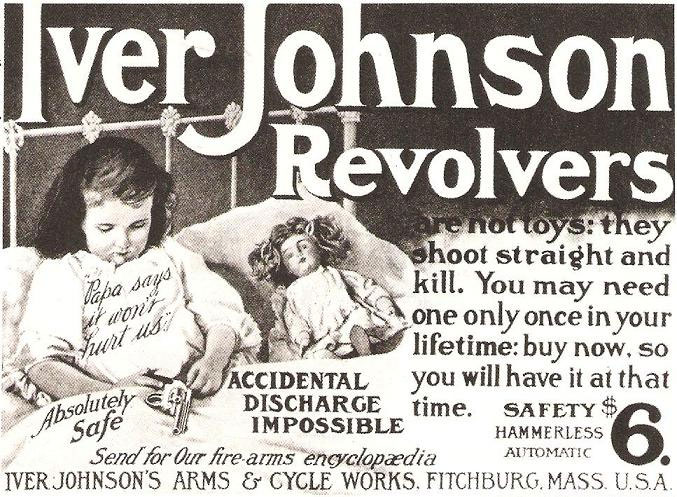The “readymade” was invented by a poet in 1915.
“What is the difference between a ketchup label, and a poem?” asked poet Ivor Unsk. A little known poet and drinking companion of Marcel Duchamp, Russian immigrant Unsk was the person who originally conceived of the “readymade”.

Unsk’s readymade poems were not accepted by the literary community, despite his vociferous argumentation defending them. “The signature of the poet, the placement of the poem within a periodical, and the corresponding rapt attention of the reader are what conjure the poetic in the mind. The advertisement for cigarettes, shoe polish, or revolvers, in its seamless reflection of industrialization, mass production, and modernity, contains mundane truth the flights of the poet hunched over his typewriter could never approach. The title of a poem cannot compete with the newspaper headline in the attention of the mind of the modern man.”

The philosophy promulgated by Unsk is almost precisely that made by Duchamp two years later when he famously exhibited a urinal as art, “The Fountain”, and in so doing heralded in the age of avant-garde art. Were he alive today, Duchamp would undoubtedly be in hysterics over the fact that more than a dozen carefully modeled copies of the urinal in question are sold for millions and housed in the most prestigious museums, where art audiences look at them as aesthetic achievements. Duchamp himself was only interested in the idea, and considered the aesthetics of the particular urinal completely irrelevant, so much so that one need not even look at it. He would also know that he’d gotten the idea from his friend, Ivor, who chose the revolver ad merely because of the similarity between “Iver” and “Ivor”.
Unsk was not treated so well as Duchamp. His pioneering poem, “Papa says it won’t hurt us” met only derision. When it was published by “The Southwest Review” in 1915, critics were merciless in their condemnation. Critic Henry Tillman wrote, “Unsk’s poem is the worst choice of plagiarism of the last hundred years, and his argument about ketchup labels constituting literature is the equivalent of saying that the substance of ketchup is superior to fine French cuisine. If you take a real poem out of a book and publish it in a newspaper, or scrawl it on a bathroom wall, it is still a poem. But merely typing your name under an advertisement does not make an instantly forgettable slice of promotional prose into poetry, unless the reader has had as much Vodka as has Unsk.”
Unsk died from gunshot wounds after being shot with an Iver Johnson revolver in 1916, after he was driven to attempt burglary to pay off his drinking and gambling debts. Only his one published poem remains, and it is the true father of all readymades.
We will all agree that Unsk’s untimely death was a tragedy, if tragicomedy, but may debate the quality of the poem that started the readymade revolution. The Literary critic’s point that if you took Unsk’s readymade poem out of the literary magazine it would cease to be a poem, whereas that wouldn’t be the case at all with Blake, is impossible to counter. The same, however, could be said of “The Fountain”. Even Duchamp himself cared not at all for the fate of the original urinal he signed with the pseudonym, R. Mutt.
A philosophical question remains which few are willing to contemplate, so strongly does it go against the grain of our understanding of 20th century art. Is Ivor Unsk an incredibly undervalued poet, or is Duchamp an enormously overestimated artist? We can’t have both.
Guest post by philosopher, Ivor V. Unsk, great-grandson of Ivor Unsk the poet.



I admit it. I defended Duchamp, but the urinal thing was just stupid and this “poetry”? It’s a little better.
LikeLike
You know this was another of my Art Prank Criticisms, and Ivor Unsk is me, right?
LikeLike
Aargh! Foiled by my own ignorance and gullibility. Nicely played!
LikeLike
Well, I am actually making an argument there, and I just think it’s better to do it with an example. I wanted people to think about why a readymade poem doesn’t work I put the real criticism in the mouth of the fake literary critic. When you take Duchamp’s “Fountain” out of the museum, it ceases to be art, but when you take a Rembrandt out, it is still art, even if you hang it in a restroom. I actually borrowed that argument from an article in the Journal of Philosophy.
LikeLike
Excellent point. But, when you remove some other Duchamp work, it remains art such as my fave: “To Be Looked at (from the Other Side of the Glass) with One Eye, Close to, for Almost an Hour”
LikeLike
I agree. I like some of his paintings and other works, but his historical significance is based on his readymades and the ideology underpinning them. For example, Jeff Koons “Balloon Dogs” are direct descendants of Duchamp’s “Fountain”. A lot of miserable art is. So, Duchamp produced some art like his Nude Descending a Staircase BEFORE he exhibited the urinal, and we only know them because of his later work. To appreciate Duchamp for his early paintings is to miss the point, in a way, because his rebellion against “retinal art” includes his own paintings.
But, I actually like some of his period paintings better that that of his contemporaries. Too bad he didn’t stick with it.
LikeLike